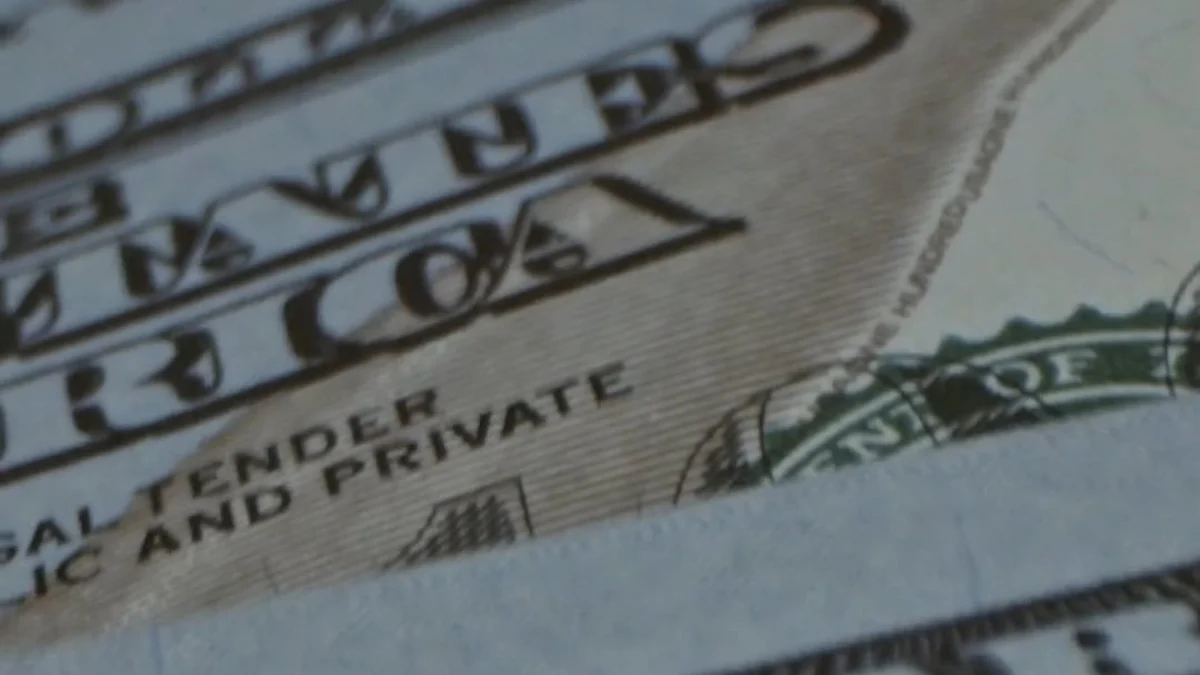Step-by-Step Plan to Increase Credit Scores Quickly

Step-by-Step Plan to Increase Credit Scores Quickly
Image Source: pexels
A strong credit score opens doors to better financial opportunities. Lenders rely on it to assess trustworthiness, making it crucial for loan approval. Many believe improving credit takes years, but that’s not true. With the right strategies, anyone can learn how to improve credit score fast for loan approval. Start today and achieve financial freedom.
Key Takeaways
-
Look at your credit report for mistakes. Fixing errors can boost your score fast.
-
Always pay your bills on time. This shows lenders you are reliable and helps your credit.
- Lower your credit card balances. Using less than 30% of your limit can raise your score quickly.
How Credit Scores Work and Why They Matter
What Are Credit Scores?
Credit scores are numerical representations of an individual’s creditworthiness. Lenders use these scores to evaluate how likely someone is to repay borrowed money. Scores typically range from 300 to 850, with higher numbers indicating better financial reliability. Credit bureaus, such as Experian, Equifax, and TransUnion, calculate these scores based on a person’s credit history.
A strong credit score reflects responsible financial behavior. It shows lenders that someone pays bills on time, manages debt wisely, and avoids risky financial habits. This number plays a critical role in determining access to loans, credit cards, and even rental agreements.
How Are Credit Scores Calculated?
Credit scores are calculated using five key factors:
-
Payment History (35%) : Consistently paying bills on time has the most significant impact.
-
Credit Utilization (30%) : This measures how much credit is used compared to the total available limit. Lower utilization rates improve scores.
-
Credit History Length (15%) : Longer credit histories demonstrate stability and reliability.
-
Credit Mix (10%) : A variety of credit types, such as loans and credit cards, can boost scores.
- New Credit (10%) : Opening too many accounts in a short time can lower scores.
Understanding these factors helps individuals focus on areas that need improvement. For example, paying down credit card balances can quickly enhance scores.
Why Credit Scores Are Crucial for Loan Approval
Credit scores directly influence loan approval and the terms offered by lenders. Borrowers with high scores often secure loans with lower interest rates because they demonstrate responsible financial behavior. On the other hand:
-
Borrowers with low scores are seen as higher risk, leading lenders to charge higher interest rates to offset potential losses.
- High scores give lenders confidence in a borrower’s ability to repay loans, resulting in better loan terms and reduced costs.
For those wondering how to improve credit score fast for loan approval, focusing on these factors can make a significant difference. A higher score not only increases the chances of approval but also saves money over time.
How to Improve Credit Score Fast for Loan Approval
Check and Dispute Errors on Your Credit Report
Errors on credit reports can significantly lower scores. Individuals should review their reports from all three major credit bureaus—Experian, Equifax, and TransUnion. Common errors include:
-
Incorrect personal information
-
Accounts that don’t belong to the individual
-
Closed accounts listed as open
-
Duplicate accounts
-
Incorrect payment statuses
- Outdated details
Disputing these inaccuracies can lead to quick improvements. By contacting the credit bureau and providing evidence, individuals can correct errors and boost their scores. This step is essential for anyone wondering how to improve credit score fast for loan approval.
Make On-Time Payments Consistently
Payment history accounts for 35% of a credit score, making it the most critical factor. Consistently paying bills on time builds trust with lenders and improves scores over time. The table below highlights the impact of on-time payments:
| Evidence Description | Impact on Credit Score |
|---|---|
| Payment history is the biggest factor in your credit score. | High |
| Consistent on-time payments help build your credit score over time. | Positive |
| An on-time payment streak can improve a credit score in just a few months. | Rapid Improvement |
| More accounts with on-time payments speed up credit score improvement. | Accelerated Growth |
| The later a payment is, the more it negatively affects your credit score. | Detrimental Effect |
Setting up automatic payments or reminders ensures bills are never missed. This habit is a cornerstone for improving credit scores quickly.
Pay Down Credit Card Balances
Credit utilization, or the percentage of available credit used, makes up 30% of a credit score. Keeping utilization below 30% prevents score drops, but aiming for a ratio between 1% and 10% yields the best results. Paying down balances not only reduces financial stress but also demonstrates responsible credit management. This strategy is one of the fastest ways to improve credit scores.
Avoid Closing Your Oldest Credit Accounts
Older credit accounts contribute to the length of credit history, which accounts for 15% of a credit score. Closing these accounts can shorten credit history and lower scores. Maintaining older accounts shows lenders a history of responsible credit use. A longer credit history reflects better financial management, making it a key factor in how to improve credit score fast for loan approval.
Diversify Your Credit Types
A mix of credit types, such as credit cards, auto loans, and mortgages, positively impacts scores. This diversity accounts for 10% of a credit score. Lenders view individuals with varied credit as more reliable. However, borrowers should only take on new credit if they can manage it responsibly.
Limit Hard Inquiries by Reducing New Credit Applications
Hard inquiries occur when lenders check credit for new applications. Each inquiry can lower a score by fewer than five points and remains on the report for up to a year. Limiting new credit applications minimizes these inquiries and protects scores. Responsible credit behavior ensures any temporary impact from inquiries is quickly recovered.
By following these steps, individuals can see rapid improvements in their credit scores. These strategies are essential for anyone seeking how to improve credit score fast for loan approval.
Tools and Resources to Boost Credit Scores

Image Source: pexels
Use Secured Credit Cards to Build Credit
Secured credit cards offer a practical way to build or rebuild credit. These cards require a security deposit, making them accessible even to individuals with low credit scores. Here’s why they are effective:
-
Approval doesn’t require perfect credit, as the deposit reduces risk for issuers.
-
The credit limit matches the deposit, allowing users to control spending.
-
They function like regular credit cards, offering convenience at millions of retailers.
- Responsible use, such as timely payments, can improve credit scores over time.
By using a secured credit card wisely, individuals can demonstrate financial responsibility and see their scores rise.
Consider Credit Builder Loans
Credit builder loans are another excellent tool for improving credit. These loans work by helping borrowers establish a positive payment history, which accounts for 35% of a credit score. Benefits include:
-
On-time payments get reported to major credit bureaus, boosting scores.
- Borrowers can build credit without needing a high initial score.
However, missing payments can harm credit and lead to fees. Borrowers should commit to consistent payments to maximize the benefits.
Leverage Rent Reporting Services
Rent reporting services allow tenants to report their monthly rent payments to credit bureaus. This strategy helps individuals with limited credit history. Regular rent payments demonstrate reliability, which can positively impact credit scores. Services like these are especially useful for those seeking how to improve credit score fast for loan approval.
Monitor Your Credit with Free and Paid Tools
Monitoring credit regularly helps individuals track progress and spot errors. Free tools like Credit Karma provide access to credit scores and reports. Paid services, such as Experian Boost, offer additional features like reporting utility payments. Staying informed empowers individuals to take proactive steps toward improving their credit.
Become an Authorized User on a Trusted Credit Card
Becoming an authorized user on someone else’s credit card can quickly boost credit. This strategy works best when the primary cardholder manages the account responsibly. Benefits include access to a credit card without a credit inquiry and the ability to build credit through the primary user’s positive history. However, irresponsible use by the primary cardholder can negatively affect the authorized user’s credit.
Common Mistakes to Avoid When Improving Credit Scores
Closing Long-Standing Credit Accounts
Closing old credit accounts may seem like a good idea, but it can harm credit scores. These accounts contribute to the length of credit history, which makes up 15% of a credit score. When individuals close their oldest accounts, they shorten their credit history. This action signals instability to lenders. Instead, keeping these accounts open demonstrates long-term financial responsibility. Even if the account is unused, maintaining it can positively impact credit scores.
Ignoring Errors on Your Credit Report
Errors on credit reports can significantly lower scores. Many people overlook this issue, assuming their reports are accurate. However, mistakes like incorrect payment statuses or duplicate accounts are common. These inaccuracies can misrepresent financial behavior. Regularly reviewing credit reports from all three major bureaus helps identify errors. Disputing these mistakes promptly ensures scores reflect accurate information. Taking this step can lead to noticeable improvements.
Applying for Too Many Credit Accounts at Once
Applying for multiple credit accounts within a short period can damage credit scores. Each application triggers a hard inquiry, which lowers scores by a few points. These inquiries remain on credit reports for two years. Although their impact lessens over time, frequent applications create a cumulative negative effect. To avoid this, individuals should limit applications to one every six months. This approach minimizes score reductions and shows lenders responsible credit behavior.
Overusing Available Credit
Using too much available credit signals financial strain. High credit utilization rates, especially above 30%, can lower scores. Lenders view this as a sign of over-reliance on credit. Paying down balances and keeping utilization between 1% and 10% demonstrates control over finances. This strategy not only improves credit scores but also builds trust with lenders.
Improving a credit score begins with small, impactful actions. Start with these steps:
-
Make Payments on Time: Timely payments build trust with lenders and strengthen credit profiles.
- Pay Down Balances : Lowering credit utilization rates can quickly boost scores.
Consistent effort transforms financial opportunities. A higher credit score unlocks better loan terms, lower interest rates, and greater financial freedom. Take the first step today and begin the journey toward a stronger financial future.
FAQ
How long does it take to see credit score improvements?
Most individuals notice changes within 30-60 days after implementing strategies like paying down balances or disputing errors. Consistency accelerates results.
Will checking my credit report lower my score?
No, checking your own credit report is a soft inquiry. It doesn’t affect your score and helps identify errors or areas for improvement.
- � Tip: Regularly reviewing your credit report ensures accuracy and boosts financial awareness.
Can paying off all debt instantly improve my credit score?
Paying off debt reduces credit utilization, which improves scores. However, maintaining a mix of credit types and on-time payments ensures long-term benefits.
- � Action Step: Focus on reducing balances below 30% for faster results.